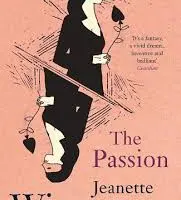The Mask of Dimitrios, by Eric Ambler
The Mask of Dimitrios was first published in 1939. It portrays a Europe in which politics, crime and big business are inextricably intertwined; one in which real power is often exercised out of sight and the news the public reads is never more than half the story.
How far we’ve come!
Latimer, a reasonably successful English crime writer, is on holiday in Turkey when he meets the slightly sinister Colonel Haki of Turkish intelligence at a party. The Colonel asks Latimer to call upon him the next day and it turns out that like so many people Latimer meets he has an idea for a book that he wants to pitch.
The book idea is terrible, but in the course of the conversation the Colonel mentions how real crime is so much messier than literary crime, and to illustrate his point he takes Latimer to the morgue and shows him the body of a murdered man. That man is Dimitrios, stabbed in the stomach and pulled dead from the sea.
The death of Dimitrios allows the Turkish police to close their file on him – a file which includes allegations of murder, political assassination and a host of other crimes. Dimitrios has been sought after for years but eluded all attempts at capture. Now he lies on a slab with nothing to his name but an identity card sewn into his cheap suit.
Latimer is intrigued and decides as a sort of hobby project to discover more about Dimitrios. He sets out to retrace his steps, learn about his life and in doing so perhaps understand what forces and experiences create such a man.
I often say that any book is allowed one “gimme”. In Mask it’s that Latimer pursues this pet project far longer than is remotely sensible. It’s a device; you just have to accept it.
Latimer’s investigation takes him across Europe, from Istanbul through Athens, Smyrna, Sofia, Geneva and Paris. Along the way he meets an aging brothel-keeper, a retired Polish spy, various journalists and criminals and most notably a man named Mr Peters. Peters joins Latimer on a train journey, seemingly by accident. Here Ambler describes Latimer’s first impression of Peter’s face:
There was the sort of sallow shapelessness about it that derives from simultaneous over-eating and under-sleeping. From above two heavy satchels of flesh peered a pair of pale blue, bloodshot eyes that seemed to be permanently weeping. The nose was rubbery and indeterminate. The lips were pallid and undefined, seeming thicker than they really were. Pressed together over unnaturally white and regular false teeth, they were set permanently in a saccharine smile.
Peters is a sanctimonious sort full of cod-theology and long-winded rhetoric. He makes a tedious train companion but at least once you get off you’ve no reason ever to see him again. So Latimer thinks anyway…
As he pursues the trail of Dimitrios, Latimer finds himself slowly piecing together both the man’s history and his world. It’s a kind of twisted mirror-Europe to the one Latimer thought he inhabited. A world in which banks such as the Eurasian Credit Trust hire assassins to fund coups so as to serve their own business interests. It’s a world in which a lot of people still seem very interested in Dimitrios.
As for the Eurasian Credit Trust by the way, we never meet anyone directly employed by it and yet there’s a sense that it’s the real villain in this story:
‘It is registered in Monaco which means not only that it pays no taxes in the countries in which it operates, but also that its balance sheet is not published and that it is impossible to find out anything about it. There are lots more like that in Europe. Its head office is in Paris, but it operates in the Balkans. Amongst other things it finances the clandestine manufacture of heroin in Bulgaria for illicit export.’
When it works Mask works very well indeed. The problem is that it starts very slowly. The framing device isn’t that interesting and Latimer is intentionally something of a void since his only function is to be a viewpoint character introducing the reader to Ambler’s Europe.
Colonel Haki is fun and so are the rest of the supporting cast, but it takes a while before you meet most of them and in the early stages there’s an awful lot of Latimer travelling to places, looking up records and digging out information from vaguely unhelpful clerks. I found that part of the story reasonably interesting, but it’s fair to say that the pages weren’t exactly turning themselves.
Once you hit the half-way mark it picks up considerably, not so much in pace (almost all the book is basically a paper chase into events that happened years before) but in depth. Dimitrios’ life starts to emerge from the shadows and the impact he had on others becomes increasingly apparent. Peters recurs and Latimer starts to realise that information which to him is a matter of quixotic curiosity might be something that others would be willing to steal or kill for.
Ambler has a nice turn of phrase and I enjoyed the at times very English tone of the novel. Here for example Latimer reflects on one of his increasing number of potential enemies:
A person who searched rooms, brandished pistols, dangled promises of half a million franc fees for nameless services and then wrote instructions to Polish spies might reasonably be regarded with suspicion.
So they might.
As Mask draws to its conclusion Latimer becomes increasingly disillusioned. You can’t look behind the curtain and continue to believe in the wizard after all. He reflects:
The logic of Michelangelo’s David, Beethoven’s Quartets and Einstein’s physics had been replaced by that of the Stock Exchange Year Book and Hitler’s Mein Kampf.
But of course the lesson of Ambler is that the truth is always murkier than we think. The world is complex, underlying causes are often obscure, and whenever something significant is happening someone, somewhere is probably making money from it.
One more quote before I wrap up, here mostly to illustrate quite how well Ambler manages to evoke his fractured Europe:
From the balcony outside the window of his room, he could see over the bay to the hills beyond. A moon had risen and its reflection gleamed through the tangle of crane jibs along the quay where the steamers berthed. The searchlights of a Turkish cruiser anchored in the roadstead outside the inner port swung round like long white fingers, brushed the summits of the hills and were extinguished. Out in the harbour and on the slopes above the town pinpoints of light twinkled. A slight, warm breeze off the sea had begun to stir the leaves of a rubber tree in the garden below him. In another room of the hotel a woman laughed. Somewhere in the distance a gramophone was playing a tango. The turntable was revolving too quickly and the sound was shrill and congested.
Isn’t that lovely? And yet, there’s that slight sour note at the end there which cleverly undermines the beauty of the rest of the passage. That’s Ambler, showing us the sour note at the heart of Europe.
Mask had been described to me by some as Ambler’s best novel. It certainly has its moments and the back half is very enjoyable, but the front section does drag at times and I think this does have some structural issues. Persistence does pay off but for me while it was definitely worth reading it’s not as strong as Uncommon Danger and I don’t think the villains are quite as memorable either.
Other reviews
None that I’m aware of in the blogosphere. However, I did see a comment by John Self of The Asylum against an Amazon review where he mentioned he only got 60 pages into this before abandoning it. It’s not a review, but it does suggest he also found the front section a little slow to get going.















I never understand why people say this is Ambler’s best. It was actually one of my least favorites of his. But to me, even subpar Ambler is pretty darn fantastic. At the moment I am in the final stages of The Seige of the Villa Lipp. Perfect summer reading.
I enjoyed your opening to this piece – isn’t it funny how some things never change? The pacing does sound problematic here, which is a shame as the premise is interesting. I’ve only read one Ambler — Topkapi/The Light of Day — which I would definitely recommend as an entertaining caper. As far as I can recall, it was quite sprightly, so no issues with dragging there. I actually have an old copy of this one somewhere, so I’ll have it dig it out. It’s good to know in advance about the slow start, definitely something to bear in mind.
I own this one but haven’t read it yet. I’ve been putting it off. Have you seen the film?
Good to know, as Jacqui says, about the slow part, and also good to know that it’s not another reader’s fav. It seems to be the author’s most famous book, doesn’t it?
Thomas, I don’t get it either. It certainly has its moments and I don’t regret reading it but it was heavy going early on which wasn’t true of Uncommon Danger. Peters is great (someone on Amazon said you could picture him played by Sydney Greenstreet which is absolutely right) and so is much of the rest of the supporting cast, but as I say above there’s quite a lot to get through before you meet most of them.
Siege is unfamiliar to me. I’ll look it out, though my impression is that Ambler wrote a fair few.
Jacqui, isn’t it just? The pacing is off here. There’s an especially clunky bit in the first couple of pages where the authorial voice muses about providence but then lays it on really thick saying that if there is providence it’s idiotic since it would never otherwise have chosen Latimer. Thing is, Latimer makes many mistakes but he does ok overall and besides, why underline to me the unlikeliness of your protagonist? I already know I have to swallow that.
I’ll take a fresh look at your review, which I do recall. I suspect that as with Uncommon Danger it’s a stronger offering.
Guy, I haven’t, though I do wonder if it might make a better film. The prose is good though once there’s something to actually write about. I’m absolutely not saying don’t read it by the way – overall I enjoyed it. It’s just that it is worth being aware that there’s a bit of initial work. I’d try and get really stuck in on the first reading session then the rest should go fine. I think I erred a bit by reading it on the tube which meant I had about three real life days in which not much happened.
I’ve read one Ambler and thought very highly of it – so I’m intrigued by your review as I’d heard that this one was his best too. Fortunately, I have a copy somewhere so will be able to form an opinion eventually…
My impression Kaggsy is that this one is widely acclaimed as his best, except by people who’ve actually read it. There’s a very good overview of Ambler at the Guardian here: https://www.theguardian.com/books/2009/jun/06/eric-ambler-mask-dimitrios-journey-fear and it’s notable that there too the writer queries Mask’s status.
Part of the issue is the early pacing. Part also though is Latimer, who’s just an idiot. In Uncommon Danger the naive protagonist figure gets involved because he knowingly accepts a dodgy request on the basis that he’s utterly broke and desperate. After that he finds himself quickly in well over his head.
That makes sense. That guy messes up but it’s an understandable error – a situation one could imagine oneself in if sufficiently hard pressed.
Latimer though, he has no real need to do any of this and there did come a point where I thought – why are you continuing? This is plainly becoming dangerous and you’re a middle class crime novelist. Go home! The book does address that, but it’s basically the gimme about his curiosity driving him. As motivations go it’s harder to sympathise with.
The guy in Uncommon gets into danger and while it’s partly his fault the risk he faces is much greater than he deserves for his fault. Latimer is more like a hiker who goes up a mountain wearing a light jumper and some trainers and then needs rescuing when the weather turns…
He’s a writer I’ve never read but would like to try. Maybe I’ll start with another one.
I liked this much better than you Max, but your comments are all fair. The set up is ludicrous, but I went with it because it was such fun (helped I read it on holiday maybe).
It’s only my second Ambler – I’ve liked them both, without being bowled over.
I would Emma, either the one Jacqui reviewed or Uncommon Danger which is the other that I reviewed. Epitaph for a Spy is also supposed to be good but I’ve no idea if anyone here has read that. This is worth reading, but I’m glad it was my second.
Ian, I think you have to go with the setup. As I say, it’s the gimme, like accepting faster than light in an SF novel or whatever. What was the other you read? Do you recall?
You write: ‘How far we’ve come!’
Quite.
I read this quite recently, enjoyed it but was rather irked by two of the criticisms you make: Latimer’s persistence when he has no real motivation, and his general lack of character. Thinking it was Ambler’s best, it didn’t encourage me to read more – but luckily it seems this is not the case!
Indeed Mark. It’s always striking with Ambler how relevant he remains.
Grant, it’s not the best of the two I’ve read and it doesn’t seem to be many other people’s best either. Kenton in Uncommon Danger has much better reasons for being involved so maybe give that a try.
Lack of character is I think partly intentional since Latimer’s a viewpoint character, but even so he’s pretty vanilla I admit.
Have also read Journey Into Fear, Max – good, but also somewhat contrived in terms of the situation.
Been thinking about this again. It does somewhat undermine the idea of a sinister and powerful criminal / commercial network “running things” from the shadows if Latimer – essentially a bloke off the street – can finagle his way into its outposts and dens with what is little more than solid journalistic research. Spoils the fun to think like this, of course…
Somewhat, but less than this I think.
On your second point, how much does Latimer really achieve though? My impression was that once you reach the shadows rather a lot of people know that organisations such as Eurasian Credit Trust exist, but that’s a long way from doing much about it. In both this and Uncommon Danger a few operatives and criminals may be exposed or taken out, but the system remains pretty much unchanged and the genuinely big players are left pretty much untouched.
I read 4 of Ambler’s novels quite a long time ago (including Mask and Journey), and can’t remember much other than they were entertaining. I didn’t really see him as the pinnacle of the espionage novel, as some would have it.
I’ve read marginally more Le Carre than I have Ambler (four to two I think) and I’d give Le Carre the advantage, or maybe Deighton but I’ve only read one of his. Fleming I’m not a fan of but it’s hard to argue against his influence.
So yes, I think that’s fair. I think Ambler is entertaining and he deserves his re-releases but it’s hard to match say Tinker, Tailor, Soldier, Spy.
I’m glad you warned me about the clunky opening. I read this the other weekend and had it not been for your comments then I might well have put it aside after the first few pages. Overall, I found it a bit heavy and laboured –
rather different in tone The Light of Day which proved to be much more entertaining!
Will you be writing it up Jacqui? I’m just back from a holiday in Budapest (which is lovely) and am catching up on missed posts but I don’t recall seeing a fresh Ambler review from you.
Pingback: Post Christmas round-up | Pechorin's Journal